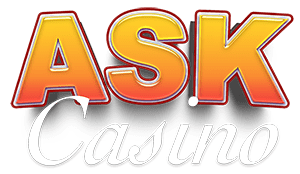Overview of Gambling Regulations in Connecticut
Gambling is regulated by the state of Connecticut, with different restrictions for each type. There are numerous casinos, which offer a variety of games including slots and table games. Bingo and raffles are also allowed under specific conditions. Off-track betting has been legal since 1997, while sports betting remains illegal in most forms. Lottery gambling is available throughout the state through the CT lottery retailer network.
The Department of Consumer Protection (DCP) regulates all aspects of gaming in Connecticut through its Division of Special Revenue (DSR), which oversees casino operations, charitable gaming regulations, and other related activities. The Office of Indian Affairs administers tribal gaming regulations on Native American lands within the state borders as well. All forms of online gambling are prohibited in Connecticut but players can still access offshore sites without consequence.
In terms of land-based options, Connecticut offers plenty to choose from; there’s something for everyone here whether you’re looking for traditional casino action or more niche offerings like bingo or raffle draws. With that being said, let’s take a look at what types of gambling are allowed in the state next.
Types Of Gambling Allowed In The State
Connecticut is home to many forms of legal gambling, including casinos and pari-mutuel betting. The state permits land-based and online sportsbooks, as well as lottery games such as Powerball and Mega Millions. However, all types of gaming must be regulated by the Connecticut Department of Consumer Protection (DCP).
Land-Based Gambling
The DCP regulates a variety of brick-and-mortar casinos located within the state’s borders. These properties include Mohegan Sun Casino in Uncasville, Foxwoods Resort & Casino in Mashantucket, Riverboat on Thames in New London, and more. Each casino offers patrons slots machines, table games like blackjack or craps, poker rooms with Texas Hold ‘Em cash games, tournaments or Sit N Go events. There are also horse racing tracks around the state that accept wagers on live races from across North America.
Online Gambling
Sports fans can legally place bets at offshore websites licensed outside of the United States for action on professional leagues such as MLB baseball or NBA basketball. Players may also use these international sites for racebooks to bet on thoroughbred and harness racing – although only one site currently serves customers in Connecticut due to limited options available in this regard. Lottery tickets may be purchased through mobile applications provided by authorized vendors.
In addition to these approved forms of betting entertainment, Connecticut residents may take part in fantasy sports contests offered by FanDuel or DraftKings where they draft teams composed of real players which compete against other entrants based on their individual performances during any given year. With so many options available for those who wish to enjoy gambling activities safely and securely within the confines of local laws, it’s easy to find something that suits your interests here in Connecticut!
Disallowed Forms of Gambling
The Connecticut state laws do not permit any forms of online gambling within their borders. This includes traditional casino games such as slots, poker, blackjack and roulette. Additionally, bingo and lottery options are also prohibited. The only legal form of online gambling available in Connecticut is off-track betting on horses through the CT Off-Track Betting Corporation.
Sports Betting
Sports betting is currently prohibited by law in Connecticut. Any attempts to place a bet or wager over the Internet at an offshore sportsbook would be considered illegal activity under the current statutes. All types of fantasy sports leagues and competitions are also disallowed.
Social Online Gambling
There are no social gaming sites that offer real money play for residents from Connecticut either. Social sites allow players to wager virtual currency against each other but it is still considered gambling due to its inherent elements of chance involved in winning prizes or jackpots.
These restrictions make it clear that all forms of online gambling besides horse racing remain unlawful in this state, so gamblers should avoid participating in them. Doing so can bring severe consequences which will be discussed more thoroughly in the subsequent section about penalties for illegal gambling.
Penalties For Illegal Gambling
In the state of Connecticut, illegal gambling is a serious offense and can result in some stiff penalties. The first time someone is caught participating in an illegal form of betting or wagering, they face up to six months in prison and/or a fine between $100 and $500. For any subsequent offenses, the punishments increase substantially with potential jail sentences of up to one year and fines of up to $1,000.
The courts also have the right to issue additional sanctions such as probation or community service depending on severity of the crime. In addition, anyone found guilty may be subjected to civil action from those hurt by their actions. This could include restitution payments to victims or other financial damages if applicable.
It’s important to remember that these laws apply not only to players but also operators who offer unlicensed gaming services within the state. These individuals are subject to much harsher penalties including possible felony convictions along with substantial fines and lengthy jail sentences.
Frequently Asked Questions
Are There Any Age Restrictions When It Comes To Gambling In Connecticut?
Gambling in Connecticut is a popular pastime, and there are several regulations that govern it. One such regulation involves age restrictions when it comes to gambling within the state. In this article we’ll discuss what those age limits are and how they’re enforced by local law enforcement.
In order to gamble legally in Connecticut, an individual must be at least 18 years old. This applies to all forms of gambling including casino gaming, sports betting, lotteries and more. The only exception is horse racing, which has its own set of rules regarding minimum ages for participation. Any minor under the age of 18 who attempts to participate in any form of legal gambling will have their bets refused or winnings confiscated if discovered by authorities.
The enforcement of these age restrictions is taken very seriously by the Connecticut Division of Special Revenue (DSR). It’s illegal for anyone not meeting the minimum age requirement to even enter a casino or other type of licensed gambling facility. Additionally, minors may not use credit cards or checks at casinos either as payment methods when placing wagers on games such as slots or table games – doing so could result in criminal charges being brought against them. Furthermore, establishments offering gambling services can face fines if caught allowing underage individuals access to their premises without proper authorisation from DSR officials.
It’s important that everyone involved with legal gambling activities in Connecticut understands and abides by the relevant laws surrounding age restrictions – failure to do so can lead to serious consequences for both players and operators alike. All participants should make sure they take steps to ensure responsible gaming practices are followed at all times while enjoying their favourite activities within the state’s boundaries.
What Are The Tax Implications Of Gambling Winnings In Connecticut?
Gambling winnings are subject to taxation, and Connecticut is no exception. Gambling income in the state of Connecticut must be reported on your federal tax return, and any taxes owed depend on your total annual gambling activity. Additionally, if you’re a professional gambler or have won large amounts from lottery games, it’s possible that you may owe additional fees at the state level too.
In order to accurately report all of your wins and losses when filing taxes each year, it’s important to keep track of all your activities while gambling. You should note the date and amount of wagers placed, as well as any receipts for purchases made. Keeping an accurate record will ensure that you can properly calculate any taxable winnings come tax season.
For most casual gamblers who don’t make a living off betting, their winnings are treated like normal income by the IRS. This means they’ll pay standard income tax rates based on their full-time job earnings plus whatever extra revenue comes from gambling. However, high-stakes players such as professionals might face higher rates depending on what type of game they’re playing and how much money they’re making overall. The best way to know exactly what kind of tax burden you could face is by discussing with a financial advisor familiar with Connecticut laws about gambling and taxes.
Are There Any Restrictions On The Amount Of Money I Can Bet In Connecticut?
When it comes to gambling in Connecticut, there are several restrictions and laws that dictate how much money you can bet. From taxes on your winnings to age requirements for playing, knowing the rules of online casino gaming is essential if you plan to gamble. Here’s a quick breakdown of what you need to know about betting limits in Connecticut:
- Age Requirement: All players must be at least 18 years old to play any form of gambling in the state.
- Betting Limits: There is no limit on the amount of money an individual may wager each day or week when playing at an authorized casino or website. However, all winnings over $600 will be subject to taxation by the IRS and Connecticut Department of Revenue Services (DRS).
- Taxation on Winnings: Any winnings from playing poker, slots, table games, lotteries, raffles or other types of gambling are considered taxable income by both federal and state governments. While smaller amounts may not require filing additional paperwork with the DRS, larger sums will do so as part of their reporting requirement for winners over $600 annually per game type.
- Offshore Gambling Sites: Even though offshore gambling sites may offer higher stakes than those found in licensed casinos, they are illegal in Connecticut and should be avoided at all costs due to potential frauds associated with them.
To ensure your safety while gambling online in Connecticut, make sure you abide by these guidelines and double check any regulations related to taxes before withdrawing funds from your account. Additionally, always confirm that any site you’re using is legally sanctioned prior to placing bets – this way you’ll avoid running afoul of the law!
Are There Any Special Requirements To Open An Online Casino In Connecticut?
If you’re interested in starting an online casino, Connecticut has some special requirements that need to be met. From licensing and age restrictions to game regulations, understanding the laws is essential for anyone opening a gambling site in the state. Here are three important aspects of the legal environment for online casinos in Connecticut:
- Licensing: An operator must obtain a license from the Division of Special Revenue before they can offer any type of casino gaming services within the state. Licenses generally last two years and cost $25,000 per year.
- Age Restrictions: All players accessing or using any form of internet gaming must be 21-years-old or older at all times while playing on an online casino based out of Connecticut. Operators must also verify each player’s age prior to allowing access to their sites and games.
- Game Regulations: The types of games allowed on licensed sites are regulated by law as well as guidelines provided by the Department of Consumer Protection’s Gaming Division. This includes table games such as Blackjack, Roulette, Craps, Big Six Wheel, Pai Gow Poker; electronic versions of these same table games; sports betting; bingo; keno; and slots along with other house-banked card games like Three Card Poker, Caribbean Stud Poker and Let it Ride poker variations.
Overall, when considering running an online casino in Connecticut there are several more steps than just having your business licensed – you have to make sure that your customers meet certain age criteria as well as understand what types of games they will be able to play. Taking time to research these rules ahead of launching your website can save serious headaches down the line!
Are There Any Local Charities Authorized To Receive Gambling Profits In Connecticut?
If you’re looking to open an online casino in Connecticut, there are certain requirements to be aware of. But what about local charities authorized to receive gambling profits? Is this something that’s allowed?
The good news is yes – there are local charities permitted to receive gambling income. According to the state law, any licensed charitable organization can accept donations from casinos and other gaming establishments as long as it meets certain criteria. The charity must meet all applicable laws and regulations relating to operating a non-profit entity within the State of Connecticut.
Charities interested in receiving donations must submit an application with appropriate documentation outlining the organizations history and mission statement. Once approved by the Gaming Division, organizations will have access to a variety of services provided by gaming venues such as promotional materials, volunteer support, ticket sales assistance, etc. Additionally, these partnerships allow for increased awareness and outreach opportunities.
These benefits don’t just benefit the charity; they also help strengthen public trust in gaming operations throughout Connecticut while providing money for worthy causes across the state.
Conclusion
Gambling laws and regulations in Connecticut can be a bit complicated. It’s important to understand the rules before participating in any form of gambling, whether it be online or at a physical casino. Connecticuters need to make sure they are of legal age before engaging in any activities, as well as have an understanding of tax implications related to winnings. Additionally, there may be certain restrictions on how much money you’re able to bet and special requirements for opening an online casino. Lastly, those who wish to support local charities through their gambling profits should check if these organizations are authorized recipients within the state. All in all, by taking one’s time to familiarize with the Connecticut gambling laws and regulations, everyone can enjoy themselves responsibly!
Key Takeaways
- Age Restrictions: Make sure you are of legal age before betting.
- Tax Implications: Understand taxes associated with your winnings.
- Restrictions On Betting Amounts: Be aware of any limits set on bets.
- Requirements To Open An Online Casino: “Know what is needed to open up an online casino legally.”
.
Charities Supported Through Gambling Profits:
Be sure that gambling profits will reach local charities approved by the state.
Related Pages
Trevor Blacksmith, Chief Editor at Ask-casino.com, has dedicated over 15 years to the online casino industry, ensuring readers receive accurate and current information. Based in New York, Trevor's meticulous approach and extensive experience make him a trusted voice in the realm of digital gambling, upholding the highest standards of journalistic integrity.
James Reynolds Johnson is a seasoned expert in the world of online casinos. With over 10 years of experience in the industry, James has a wealth of knowledge about the latest casino games, trends, and technologies. He has worked with some of the top online casinos in the world, providing expert analysis and advice on everything from game selection to payment methods. James is passionate about helping players find the best online casinos that offer fair games, excellent customer support, and generous bonuses. When he's not writing or researching, James enjoys playing blackjack and poker.




